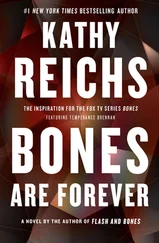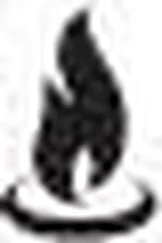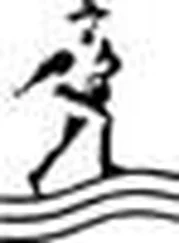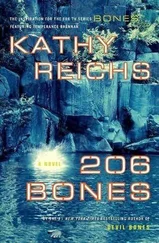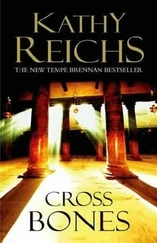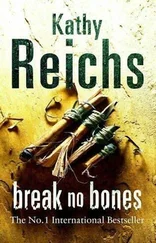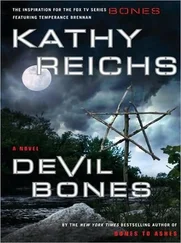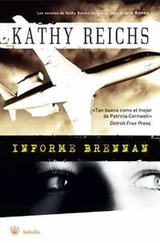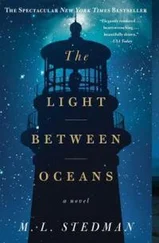Forget it. Focus on the task at hand .
I glanced out the Blackhawk’s side window. The bulletproof glass was scarred with milky slashes where antiaircraft rounds had hit and ricocheted off. I charted the terrain below, wondered if anyone had us in his sights.
Concentrated on putting that out of my mind, too.
Thanks to a strong tailwind, we arrived at Delaram early, just before 0800. The Blackhawk’s blades whipped up fans of yellow dust as we touched down. Blanton disembarked first, followed by the soldiers. All scuttled across the landing zone with heads lowered, shoulders hunched to the wind.
I followed Welsted off, sand stinging my face and collecting in the corners of my eyes. As the soldiers loaded onto a convoy truck and departed, Blanton waved us over to an idling Humvee with two grit-coated marines, one at the wheel, the other riding shotgun.
“World’s biggest freakin’ sandbox.” Blanton pulled a wry smile.
Welsted breezed past us into the vehicle. Blanton and I joined her in the backseat.
The Humvee rumbled down an unpaved road that lay bleached and bone-white from the passage of military convoys. Nothing much to see. Sand molded by the wind into spiny formations. Stunted trees bearing withered fruit. The charred remains of a car half buried on the shoulder.
Our driver was young, Katy’s age. No, younger. His cheeks were furred with peach fuzz. Shotgun wasn’t much older.
I wondered what the parents thought of their sons being out here. A trapdoor sprung inside my head and suddenly I was seeing the hit-and-run vic back in Charlotte. The one with the pink barrette and kitty purse. The one in a body bag.
I glanced right and caught Blanton looking at me, eyes narrow, maybe even unfriendly. Calculating? If so, calculating what? What angle was there to play? Why would Blanton’s goal, or that of NCIS, be any different from mine? From Welsted’s?
Probably nothing. Blanton had made it clear he didn’t like moving outside the wire. Maybe he was spooked. God knows I felt removed from my element. Everyone was keyed up. Still, I couldn’t shake the feeling of his cold, appraising eyes.
The Humvee hit a VCP, a vehicle checkpoint that was nothing more than a cement pillbox. A pair of soldiers sat on folding chairs, sweating though the sun was barely up. One rose and trotted over, aviator shades hooding his eyes.
Welsted presented some documents. The soldier scanned them, then bent for a better view of the Humvee’s interior.
“NCIS?”
Welsted tipped her head toward Blanton.
“Anthropologist?”
This time I got the nod.
The tinted shades swiveled my way. Lingered several beats. More hostility? Impossible to tell, since I couldn’t see the guy’s eyes. Did they figure I was there to buttress the prosecution of Second Lieutenant Gross? Paint him as a murderer? Stir up the locals once again and make everyone’s job harder and more dangerous?
The soldier waved us through.
“We’re nearly there.” Welsted spoke without turning her head. “The village isn’t much to look at. Typical of the sort you’ll see in this province. Herding, some small-scale farming. Under normal circumstances you wouldn’t find any open resentment.”
“We aren’t going in under normal circumstances.”
“No, Mr. Blanton, we are not.”
Blanton’s jaw went rigid. Was the friction due to the same jurisdictional jockeying I was used to seeing in Charlotte and Montreal? Army versus Navy? Military versus civilian? I found the thought strangely calming.
No one spoke for a bumpy five or six minutes. Then, “I won’t call these people ignorant, because that’s wrong, not to mention potentially dangerous.” Welsted squinted at the heat-shimmer rising at the horizon.
“But the life they lead is simple. We make a point of respecting their customs, insofar as they don’t interfere with our own objectives.”
“Which are?” I asked.
“Objective one is to protect the free world. Objective two, our specific goal in this operation, is to make sure that United States personnel acted properly in the pursuit of objective one.”
After several more miles of nonconversational hitching and swaying, Sheyn Bagh took shape in the distance, a compound of squat stone structures enclosed within a low stone wall on three sides, backed up to a very steep hill on the fourth.
Welsted was right. The place wasn’t much to look at. Unless your taste in architecture swung toward stark minimalism. But the setting was otherworldly.
Sheyn Bagh lay at the foot of a prominence, the south side of which rose sharply, maybe two hundred feet, to a mesa studded with oddly shaped boulders. The slope, more cliff than hill, was composed of peculiar, peaked formations that resembled upright ladyfinger cookies of differing heights. In the hazy morning light I could make out tiny holes in the rocks, like honeycomb. As we drew nearer those holes became doorways, windows, and staircases.
I was about to pose a question when Welsted explained.
“Half the village is built into the hillside. The rock is sturdy enough to provide a solid foundation, but porous enough to tunnel into.”
“Maybe that’s how Osama went to ground.”
“These towns are like icebergs.” As usual, Welsted ignored Blanton’s comment. “Only a small percentage visible.”
We drove through a gap in the wall and stopped in what probably served as the village green. At an opening between two low buildings, a goat raised its head, bleated, and clop-clopped slowly toward the Humvee.
Shotgun’s fingers tightened on his rifle. Bringing the barrel into view in the window, he shouted in what I assumed was Pashto. A kid, maybe ten or eleven, ran forward and dragged the goat back toward the alley from which it had emerged.
“Bastards shove explosives up the asses of their barnyard pals.” Blanton’s voice sounded taut.
Shotgun shouldered open his door and got out. Welsted followed.
A trio of men approached wearing clothes the color of the desert itself. Striped kaffiyeh wrapped their heads. Sandals covered their dusty feet.
One man was taller than the others. One had a mole above his beard shaped like a daisy. All three were lean, their faces pitted and scarred. I couldn’t guess their ages. Each had the look of living stone.
“I’ll do the talking.” Welsted circled the Humvee and advanced a short distance.
The men paused six feet from her. Solemn greetings were exchanged. No smiles.
Watching, I couldn’t help but wonder. Was I looking into the face of the loathsome Taliban? Were these men who would beat women, cut off their ears and noses as they begged for mercy? Shoot them in their school buses for expressing their thoughts? Maim and shun them for being victims of rape? Men who would destroy schools lest little girls learn to read? Kill volunteer workers lest they supply vaccinations against polio?
Or were they simple farmers just trying to get on with life? With the struggle of herding goats, growing crops, and raising kids?
As Welsted conferred with our welcoming committee, I looked around.
Windows stared back at me, silent and empty. Or were they? Were hidden eyes tracking our every move?
An AK-47 propped open a door. Old, but undoubtedly functional. A lethal doorstop.
Here and there men in twos and threes watched with suspicion. Boys stood frozen, play forgotten. There wasn’t a female in sight.
After a brief exchange, the trio withdrew, talked briefly, then returned to Welsted. The tallest of the three spoke. Welsted replied. The tall man hesitated, then nodded assent.
Welsted returned to the Humvee.
“They say there’s been tension between U.S. troops and some of the locals. In light of the incident. He says the exhumation must be performed with caution and—”
Читать дальше

